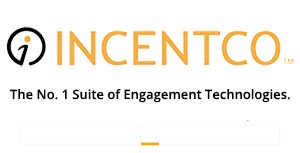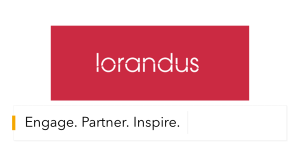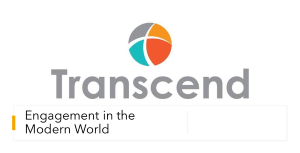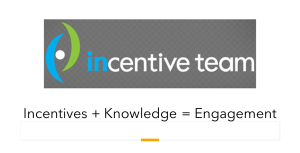EEA Show Explores Negotiating Labor Agreements in Era of Stakeholder Capitalism
(1).jpeg) This expert panel demonstrates that while there are significant opportunities for labor and management to collaborate to create value for organizations, the current frustration of workers and resistance by many in management has created a difficult atmosphere for more constructive approaches. Nonetheless, this new program at the Heller School for Social Policy and Management at Brandeis University serves to help parties make progress and achieve mutual gains.
This expert panel demonstrates that while there are significant opportunities for labor and management to collaborate to create value for organizations, the current frustration of workers and resistance by many in management has created a difficult atmosphere for more constructive approaches. Nonetheless, this new program at the Heller School for Social Policy and Management at Brandeis University serves to help parties make progress and achieve mutual gains.At a time of increased union organizing and growing demands for increased worker voice, there are problem-solving approaches to collective bargaining that can help better align the interests of key stakeholders in the commercial, non-profit, and government sectors. To help leaders on both sides gain the knowledge and skills needed to achieve more successful bargaining outcomes, the Heller School of Social Policy and Management at Brandeis University, near Boston, has created an Executive Education Program for Negotiating Labor Agreements.
.jpeg) Yes, organizations can create value through a problem-solving approach to bargaining. This expert panel demonstrates that while there are significant opportunities for labor and management to collaborate to create value for organizations, the current frustration of workers and resistance by management has left both sides worse off.
Yes, organizations can create value through a problem-solving approach to bargaining. This expert panel demonstrates that while there are significant opportunities for labor and management to collaborate to create value for organizations, the current frustration of workers and resistance by management has left both sides worse off.This new program at The Heller School for Social Policy and Management at Brandeis University serves to make progress and overcome the challenges.
At a time of increased union organizing and growing demands for increased worker voice, there are problem-solving approaches to collective bargaining that can help better align the interests of key stakeholders in the commercial, non-profit, and government sectors. To help leaders on both sides gain the knowledge and skills needed to have more successful bargaining outcomes, the Heller School, near Boston, has created an Executive Education Program on Negotiating Labor Agreements.
 This topic was recently discussed in an EEA YouTube Show, “Unions in the Emerging Era of Stakeholder Capitalism,” featuring Thomas Kochan, George Maverick Bunker Professor Emeritus of Management at the Sloane School of Management at MIT and Larry Beeferman, Independent Consultant and Fellow at the Harvard Law School Center for Labor and a Just Economy. As reported in a recent New York Times article, recent strikes and/or threats demonstrate heightened worker frustration. On the other hand, a recent Fortune magazine article reports on the positive outcomes so far of the first US bank to unionize in 40 years.
This topic was recently discussed in an EEA YouTube Show, “Unions in the Emerging Era of Stakeholder Capitalism,” featuring Thomas Kochan, George Maverick Bunker Professor Emeritus of Management at the Sloane School of Management at MIT and Larry Beeferman, Independent Consultant and Fellow at the Harvard Law School Center for Labor and a Just Economy. As reported in a recent New York Times article, recent strikes and/or threats demonstrate heightened worker frustration. On the other hand, a recent Fortune magazine article reports on the positive outcomes so far of the first US bank to unionize in 40 years.Click here to watch the show. The panelists discussing the potential for mutual gains results are:
- Joel Cutcher-Gershenfeld, Florence G. Heller Professor and Social Impact MBA Director.
- Dennis Dabney, Senior Vice President for National Labor Relations, Kaiser Permanente (retired) and Labor Relations Director, HR Policy Association.
- Kris Rondeau, Co-Lead Organizer of the Harvard Clerical and Technical Union, the SHARE union, and others; Director of AFSCME, New England.
- Søren Viemose, Advisor, Mediator, and Co-Founder of Denmark's Kalovig Center for negotiations and conflict resolution.
.jpeg) The panelists are faculty at the new executive education program at the Heller School. Here are some key insights from the 60-minute program:
The panelists are faculty at the new executive education program at the Heller School. Here are some key insights from the 60-minute program: - Despite the many advantages of labor and management cooperation, only a relatively small group of US relationships have the level of trust necessary to achieve mutual gains. There are concrete case studies demonstrating what can be accomplished through increased partnerships, but training and support is needed for management and labor to achieve these more constructive approaches to collective bargaining.
- There are islands of success illustrating that stakeholder capitalism can be supported through collective bargaining, but they are too rare. In the current US atmosphere, enhancements will more likely be incremental gains through better labor and management negotiating practices and targeted value creating practices. Big progress in nation-wide labor-management cooperation is unlikely in the short term.
- One organization mentioned – a health care system – brought in representatives from a key stakeholder group—patients (customers)—so that their voice would be taken into account during the bargaining process. The result was a new set of agreements advancing patient voice in front-line problem solving teams.
- Kaiser Permanente and the respective union groups with whom it bargains used collective bargaining to launch unit-based teams a few decades ago. Today there are over 3,500 of these front-line teams addressing patient, workforce, and organizational issues.
- Scandinavia provides excellent examples of effective labor-management cooperation that dates back to the 18th century. There is still conflict between labor and management in these countries, but what is termed “social dialogue” among labor, management, and government enables broader advances in training, recruitment, safety, new technology, and continuous improvement in operations. There is a foundation of mutual respect that makes it possible for labor and management to tackle tough problems in a collaborative way. This will be an important foundation for addressing AI and other technological advances, as well as social disruptions.
- Unfortunately, this level of mutual respect is too often lacking in the US. Managers too often see unions as a threat to their control in the workplace and union leaders who support cooperation face accusations that they are not being sufficiently adversarial.
- There is the potential for organizations on both sides to learn the skills that can lead to better outcomes for management, labor, and other key stakeholders.
ESM Is Published by The EEA: Your Source for Effective Stakeholder Management, Engagement, and Reporting
Through education, media, business development, advisory services, and outreach, the Enterprise Engagement Alliance supports professionals, educators, organizations, asset managers, investors, and engagement solution providers seeking a competitive advantage by profiting from a strategic and systematic approach to stakeholder engagement across the enterprise. Click here for details on all EEA and ESM media services.
1. Professional Education on Stakeholder Management and Total Rewards
- Become part of the EEA as an individual, corporation, or solution provider to gain access to valuable learning, thought leadership, and marketing resources to master stakeholder management and reporting.
- The only education and certification program focusing on Stakeholder Engagement and Human Capital metrics and reporting, featuring nine members-only training videos that provide preparation for certification in Enterprise Engagement.
- EEA books: Paid EEA participants receive Enterprise Engagement for CEOs: The Little Blue Book for People-Centric Capitalists, a quick implementation guide for CEOs; Enterprise Engagement: The Roadmap 5th Edition implementation guide; a comprehensive textbook for practitioners, academics, and students, plus four books on theory and implementation from leaders in Stakeholder Management, Finance, Human Capital Management, and Culture.
2. Media
- ESM at EnterpriseEngagement.org, EEXAdvisors.com marketplace, ESM e–newsletters, and library.
- RRN at RewardsRecognitionNetwork.com; BrandMediaCoalition.com marketplace, RRN e-newsletters, and library.
- EEA YouTube Channel with over three dozen how-to and insight videos and growing with nearly 100 expert guests.
3. Fully Integrated Business Development for Engagement and Total Rewards
Strategic Business Development for Stakeholder Management and Total Rewards solution providers, including Integrated blog, social media, and e-newsletter campaigns managed by content marketing experts.
4. Advisory Services for Organizations
Stakeholder Management Business Plans; Human Capital Management, Metrics, and Corporate Sustainability Reporting for organizations, including ISO human capital certifications, and services for solution providers.
5. Outreach in the US and Around the World on Stakeholder Management and Total Rewards
The EEA promotes a strategic approach to people management and total rewards through its e-newsletters, web sites, and social media reaching 20,000 professionals a month and through other activities, such as:
- Association of National Advertisers Brand Engagement 360 Knowledge Center to educate brands and agencies.


















